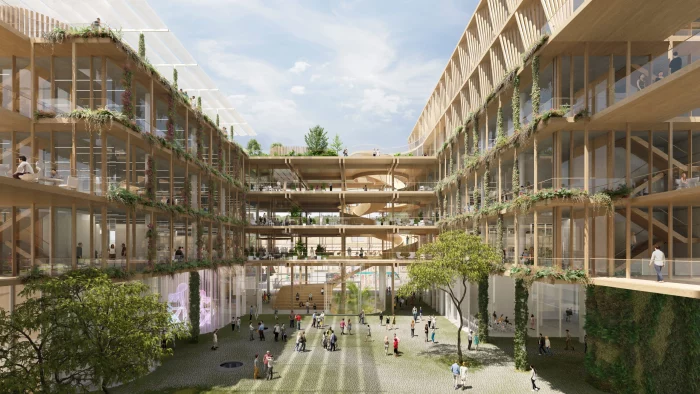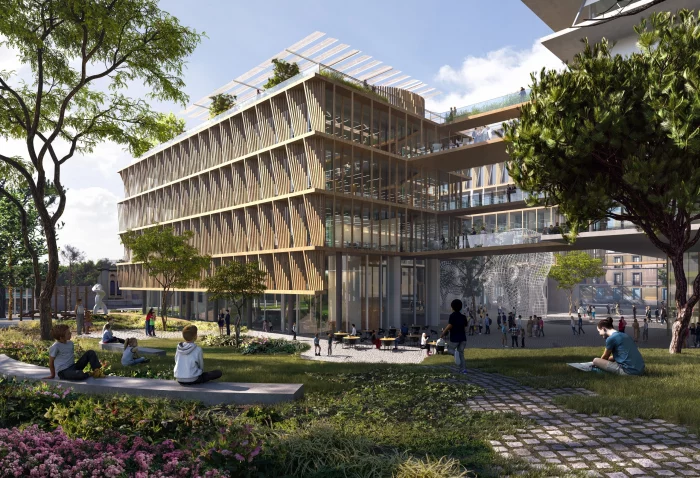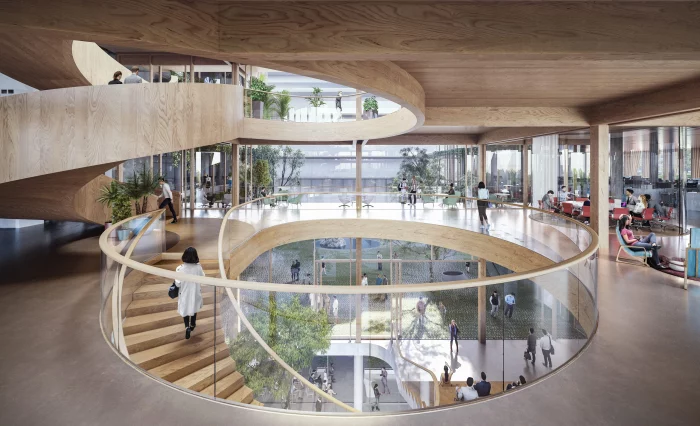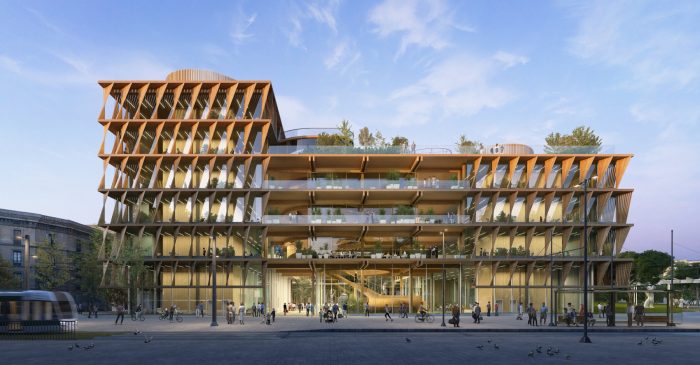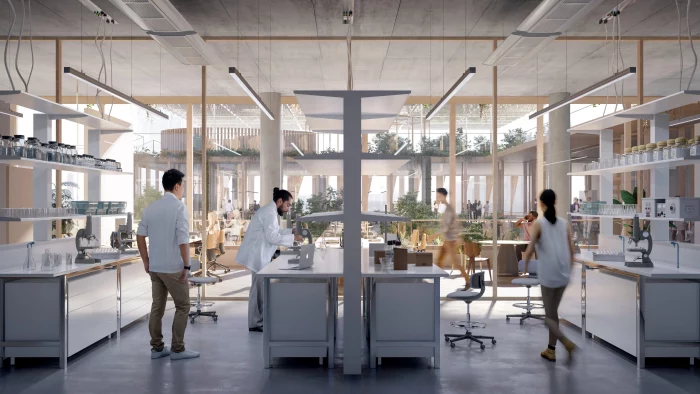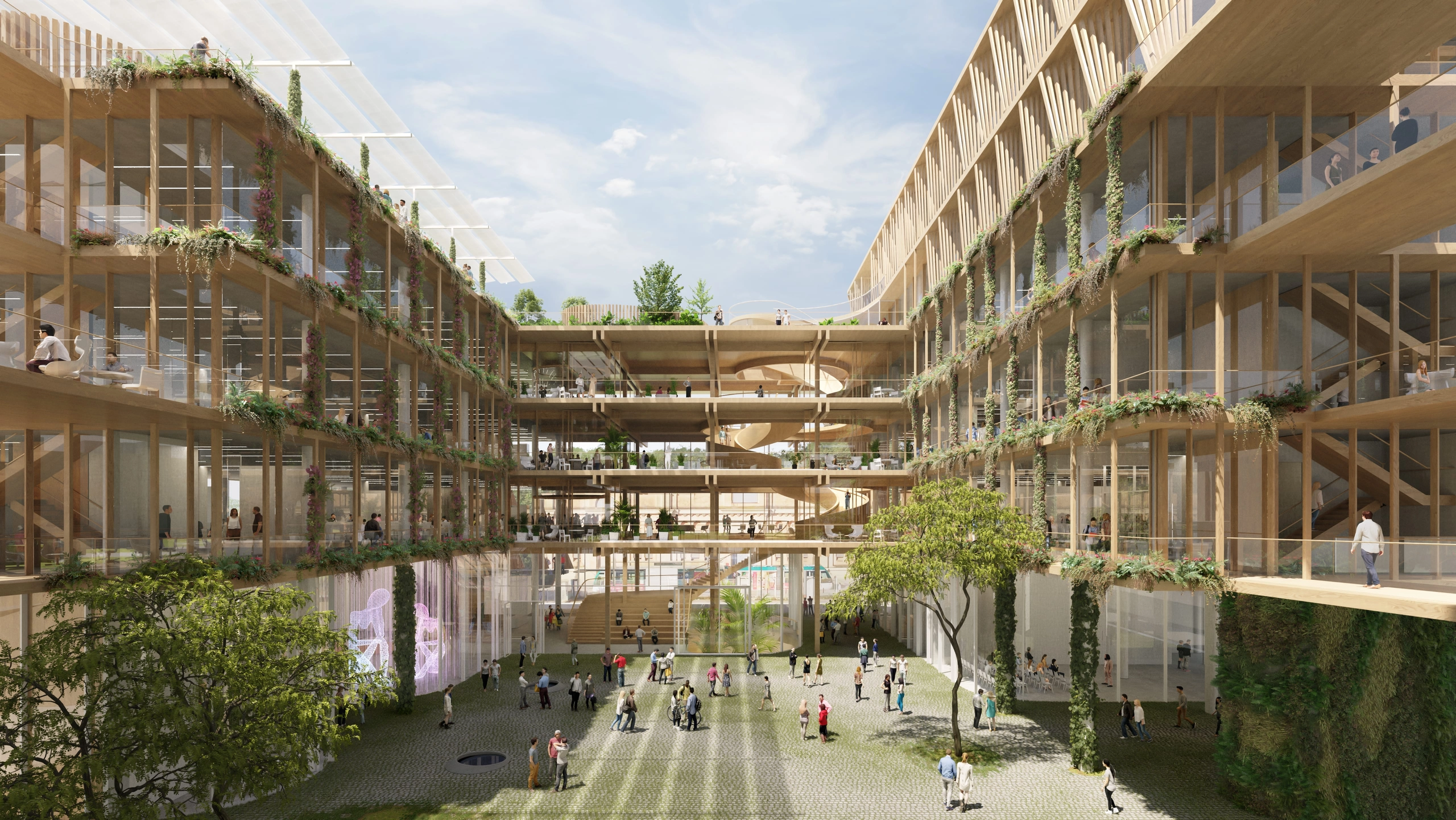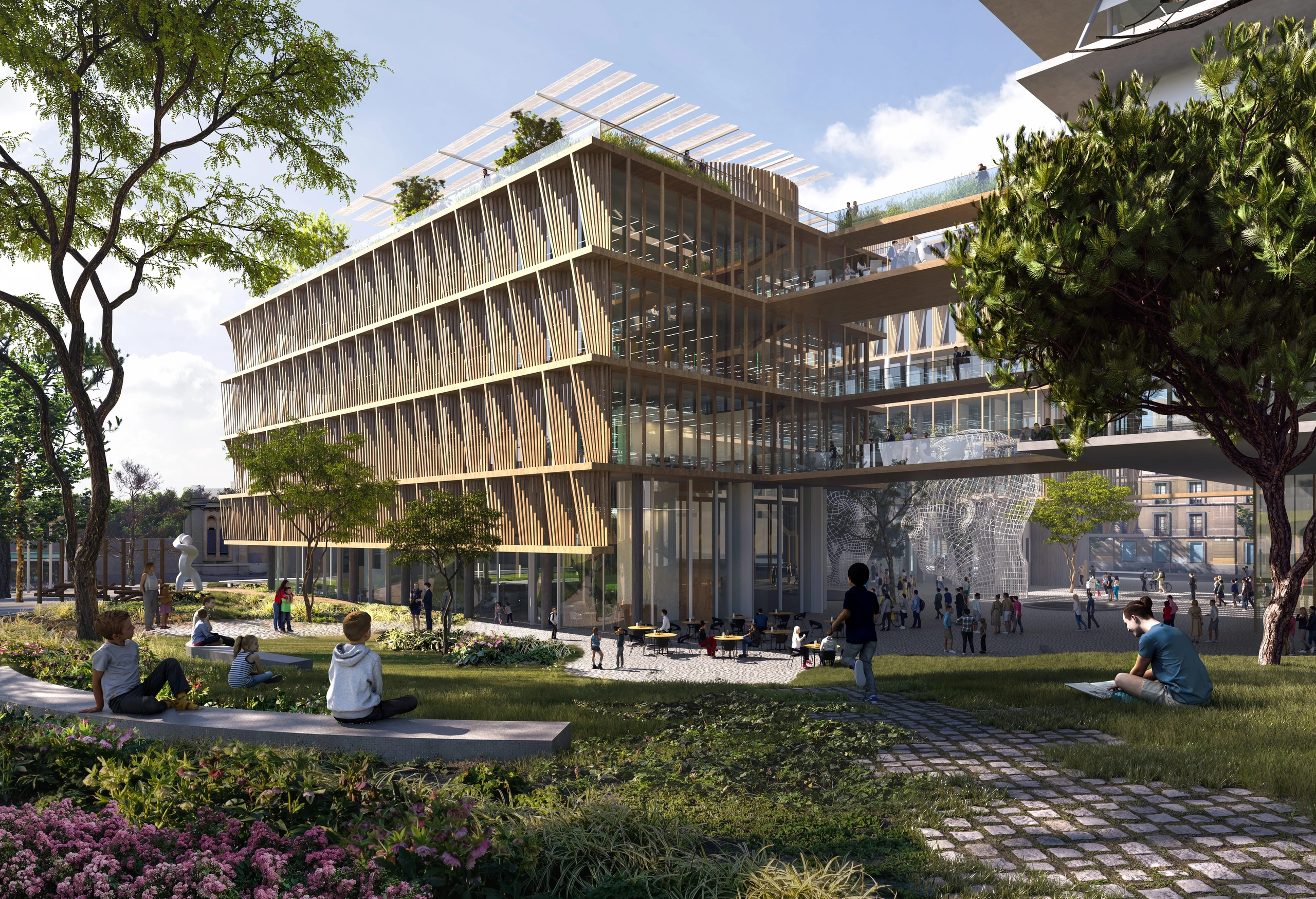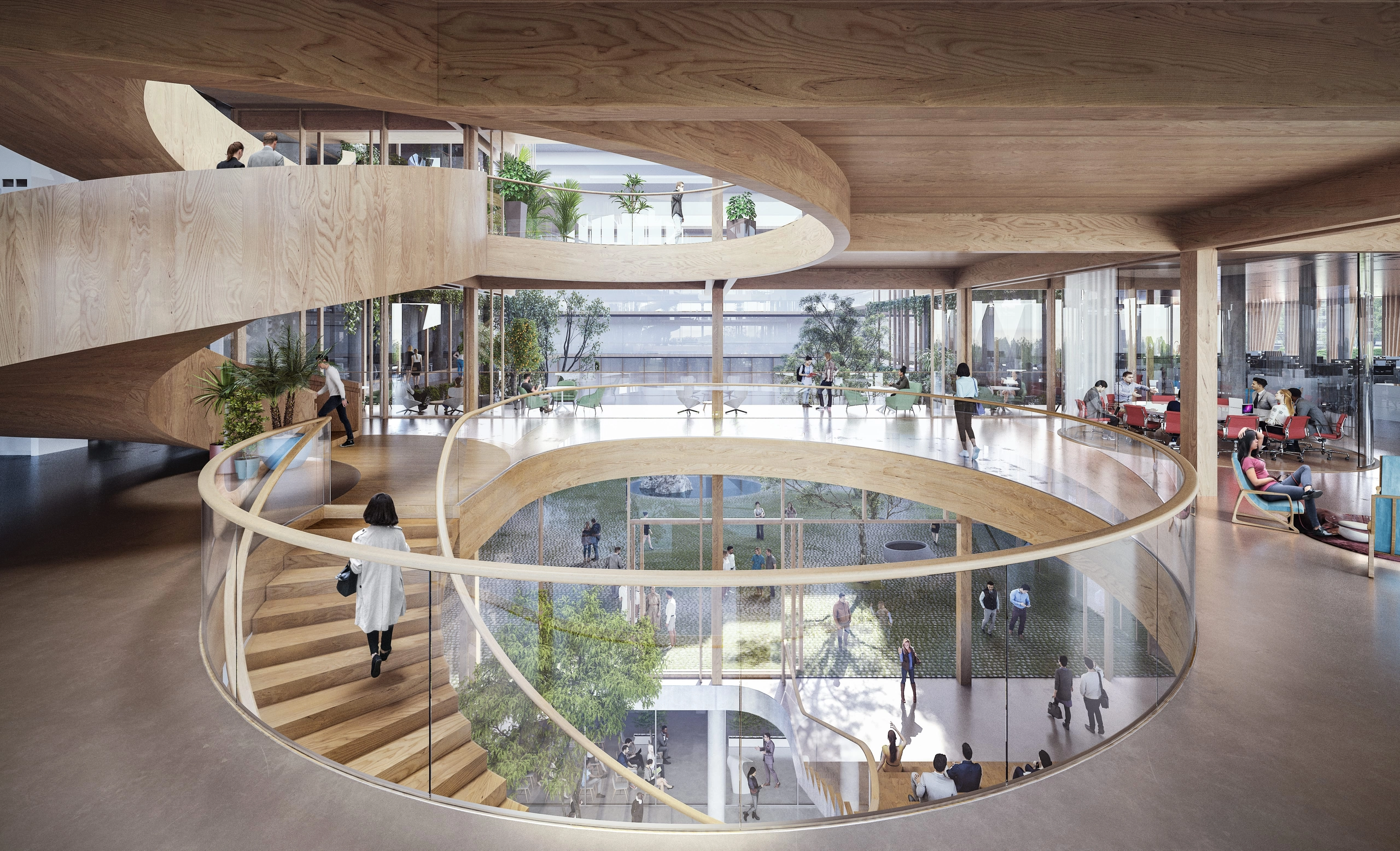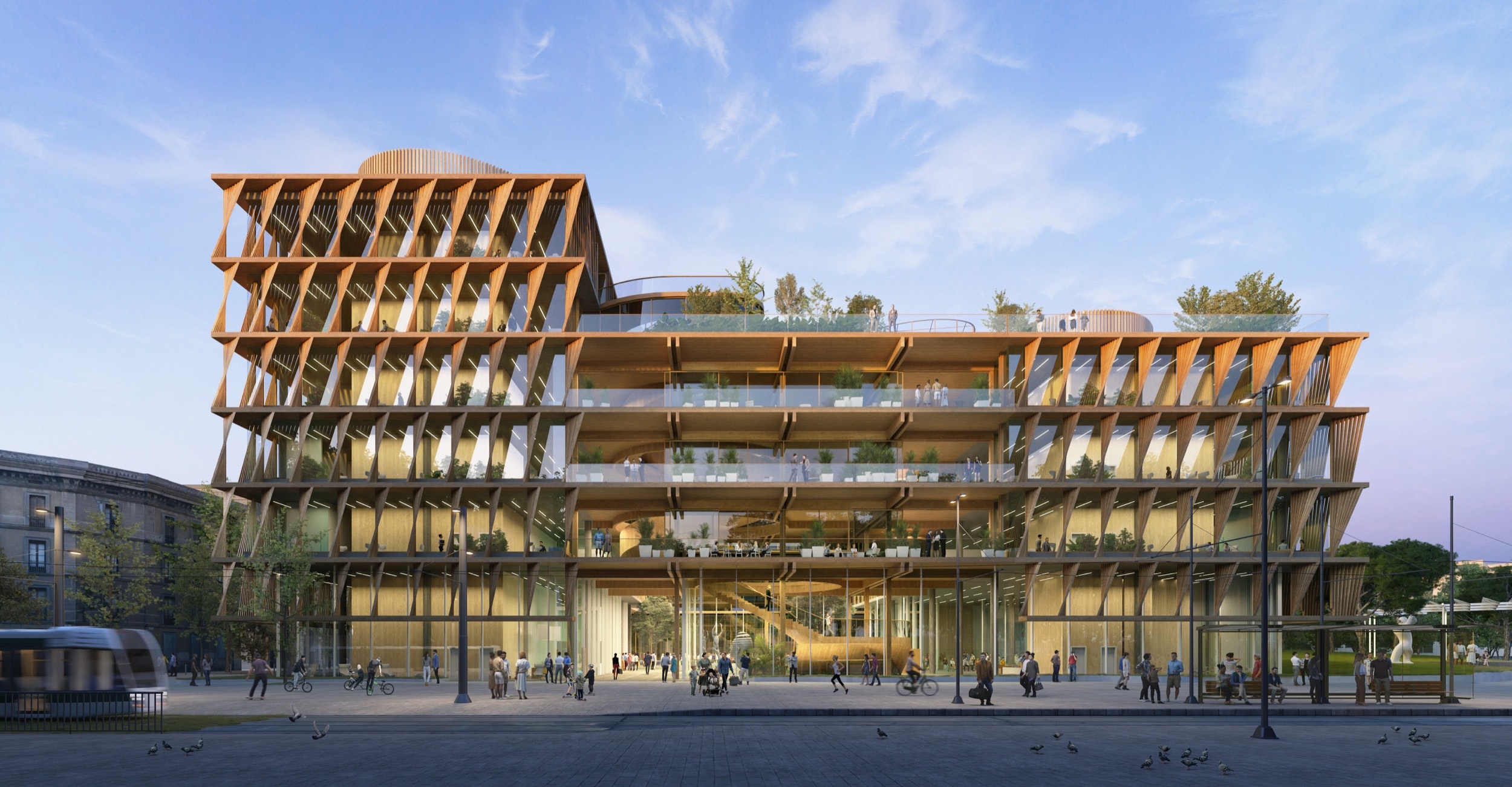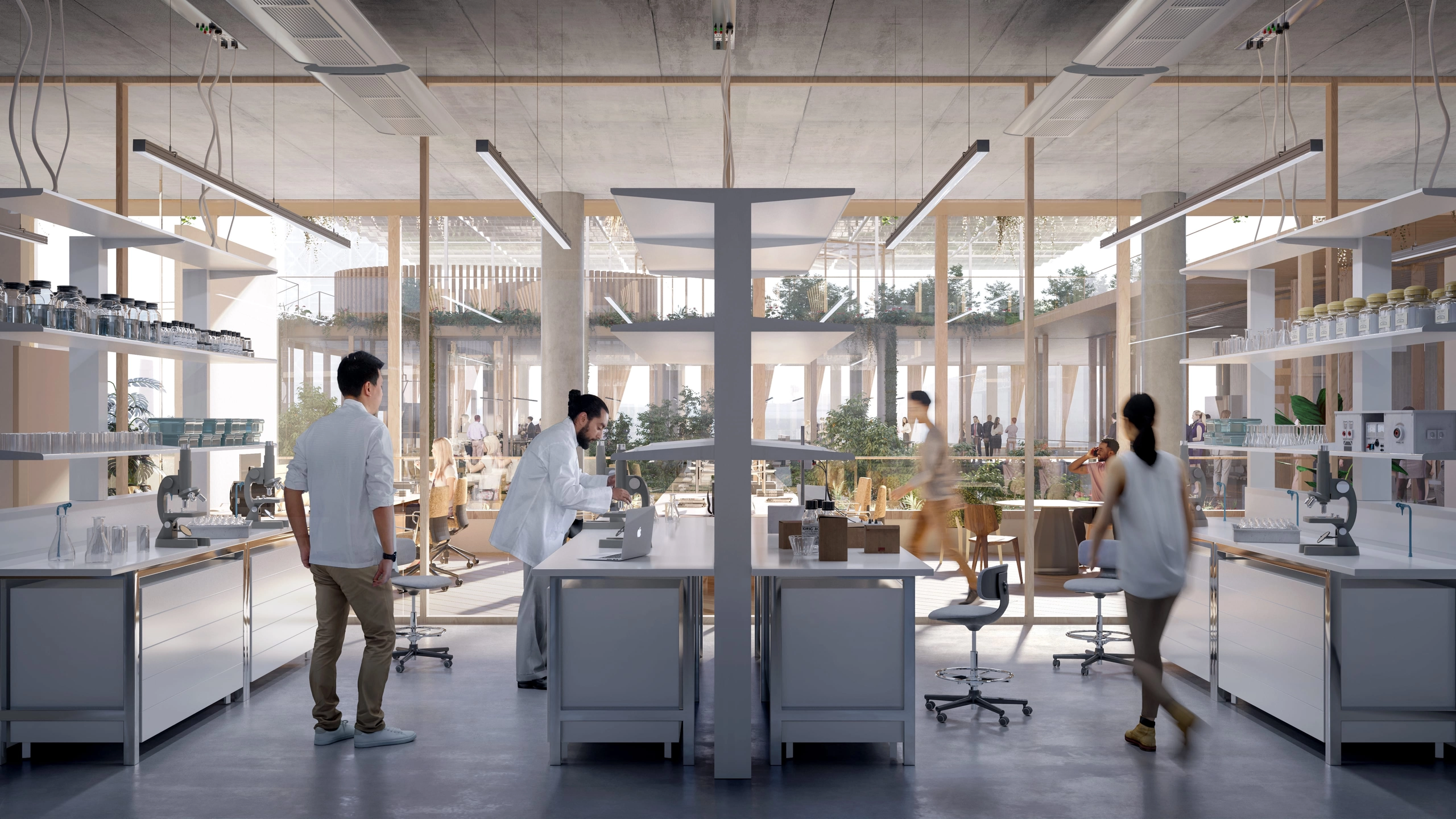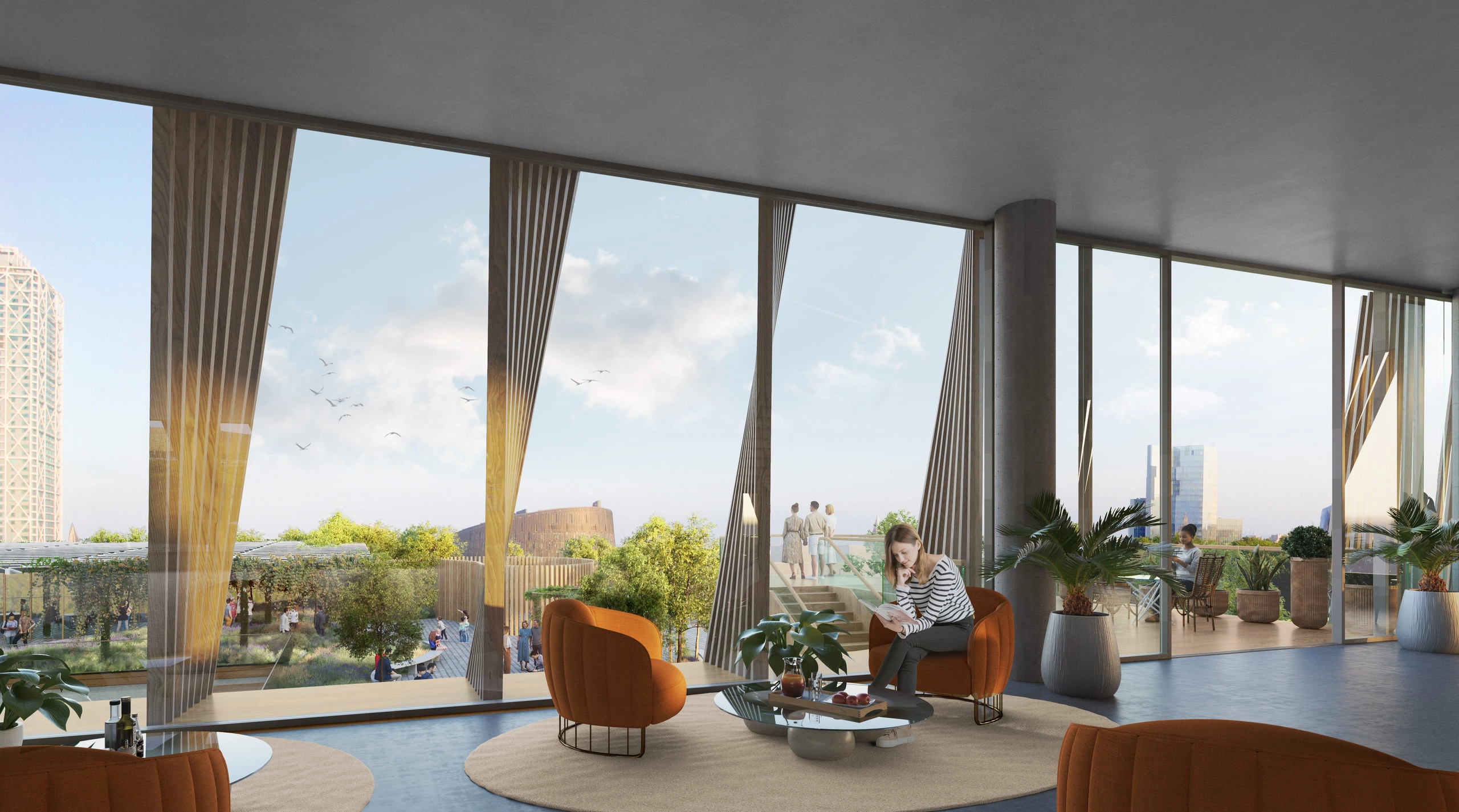A team comprising ZGF and Barcelona-based firms MIRAG and Double Twist has been selected as the competition winner for the design of a research center in Barcelona. The team beat out a five-team shortlist that included renowned firms such as Kengo Kuma & Associates and Allies and Morrison to win the Mercat del Peix Research Center project.
“Together with our colleagues at MIRAG/Double Twist, ZGF applies its understanding of sustainable laboratory design to build a net-positive home for the world’s most influential planetary-health research, according to ZGF Managing Partner Ted Hyman. “As a competitive team, our experience blends a knowledge of the cultural significance of the location with the complexity of creating sustainable laboratories. It will produce a project that reflects the world-changing proposals that will occur within.”
Mercat Del Peix As A Research Center
Located near the Parc de la Ciutadella, a notable 19th-century public green area, the new Mercat Del Peix research center will be part of the Ciutadella of Knowledge, a modern European center for educational and cultural innovation.
When it opens in 2025, the research center will house global professionals in experimental sciences, social sciences, and humanities devoted to addressing global concerns such as species extinction, climate change economics, and governance.
The design consists of two “net-positive” mass timber buildings linked by a central courtyard. The more extensive structure, a seven-story “wet lab,” will occupy the Institut de Biologia Evolutiva’s offices. In contrast, the smaller five-story “dry lab” will house a variety of group work for Barcelona’s Universitat Pompeu Fabra. More than 452,000 square feet of interior space will be available from the buildings when they are united.
Related to the article: LEVER’s Mass Timber Design Wins the Portland Museum of Art Extension Contest.
The project’s design strategy promoted collaboration between the multiple research units within the center and the surrounding Ciutadella of Knowledge. To “quietly stimulate circulation,” a range of “refined design methods” were adopted, including floor-to-ceiling glass, shared floor-to-ceiling heights between buildings, and shared areas like the central courtyard and mass timber spiraling staircase that ultimately ends at a vast rooftop.
The mechanical systems and mass timber building envelope of the Mercat Del Peix have been created to minimize operating and embodied carbon. The exterior incorporates sunscreens that diminish the harshness of the Mediterranean sun while simultaneously directing indirect sunlight deep into the structure.
The research center’s design incorporates elements that show a connection to the surrounding area and the area’s history in ways that give the relationship a more substantial conceptual, symbolic, and literal meaning. For example, the envelope’s outside shading mechanisms dedicate this study to sailing and fishing, which have been necessary to Barcelona’s economic and historical legacy for generations.
According to the Double Twist firm, “The project’s goal is to transform our buildings into a scientific and cultural center available to the scientific community and the city. The sustainability of the building’s materials, resources, and facilities has been highlighted to create two adaptable, flexible, easy to manage, and eco-friendly buildings.”
The building’s façade also includes operable windows for natural ventilation, controlled climate controls, and chilled beams to avoid energy consumption while maintaining comfort.
The chief architect of the Barcelona City Council, the manager of the Incasl, two architects chosen by the Collegi d’Arquitectes de Catalunya, and an engineer assigned to the College d’Enginyers Industrials de Catalunya made up the jury for the competition, which Jaume Casals supervised over, rector of the UPF from 2013 to 2021.
The Mercat del Peix complex, with a total area of roughly 46,000 square meters, will be erected on the ground previously used as a parking lot for the UPF’s Ciutadella campus. When fully functioning, it will employ approximately 1,200 people, most of whom will be academics. The research complex will finish with a new mobility services hub supported by Barcelona Municipal Services (BSM). The construction will begin in January 2023.
The Mercat del Peix Research Center expects to be operational by the end of 2025 as a center of information sharing and collaborative technology adoption relevant to Barcelona, Catalonia, Europe, and the rest of the world.
©Double Twist
©Double Twist
©Double Twist
©Double Twist
©Double Twist
©Double Twist


